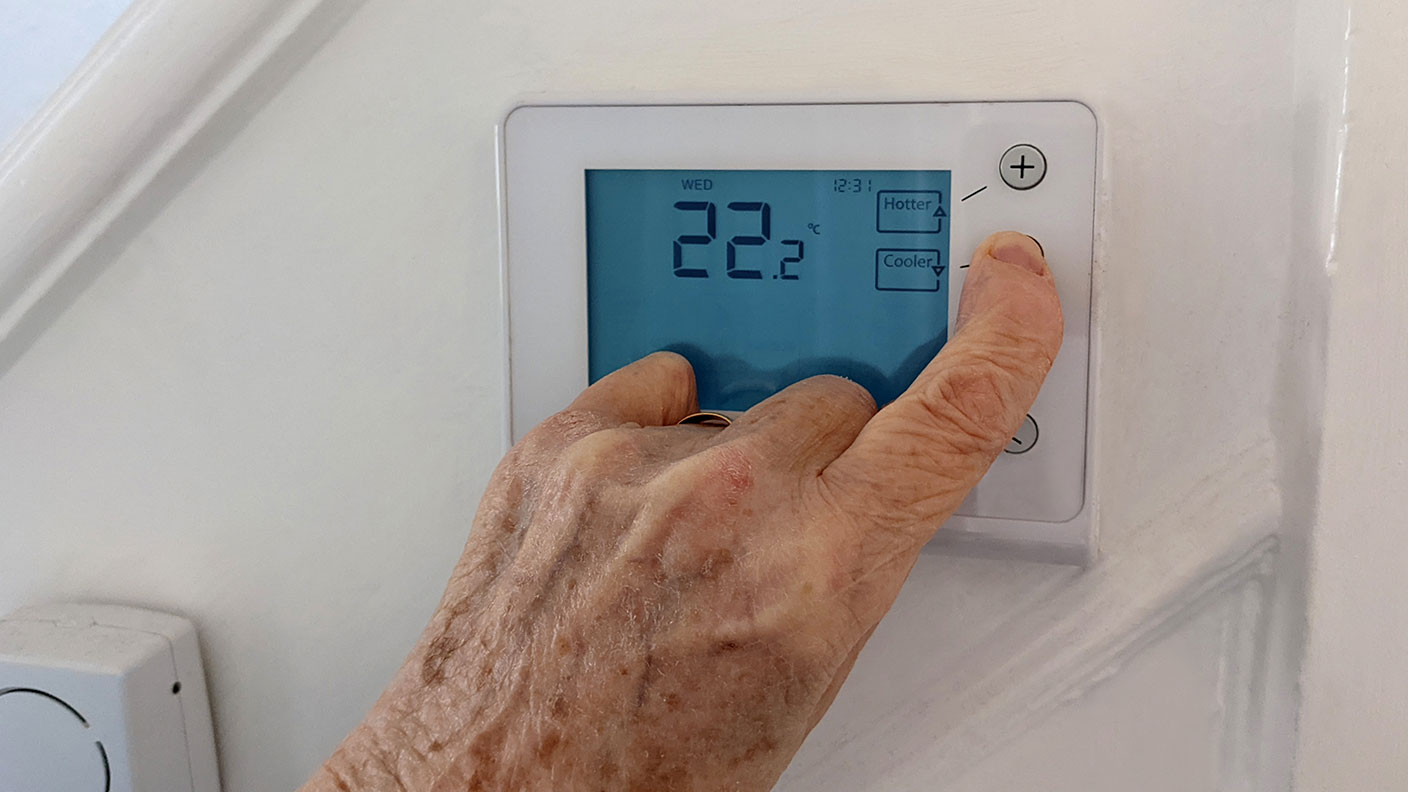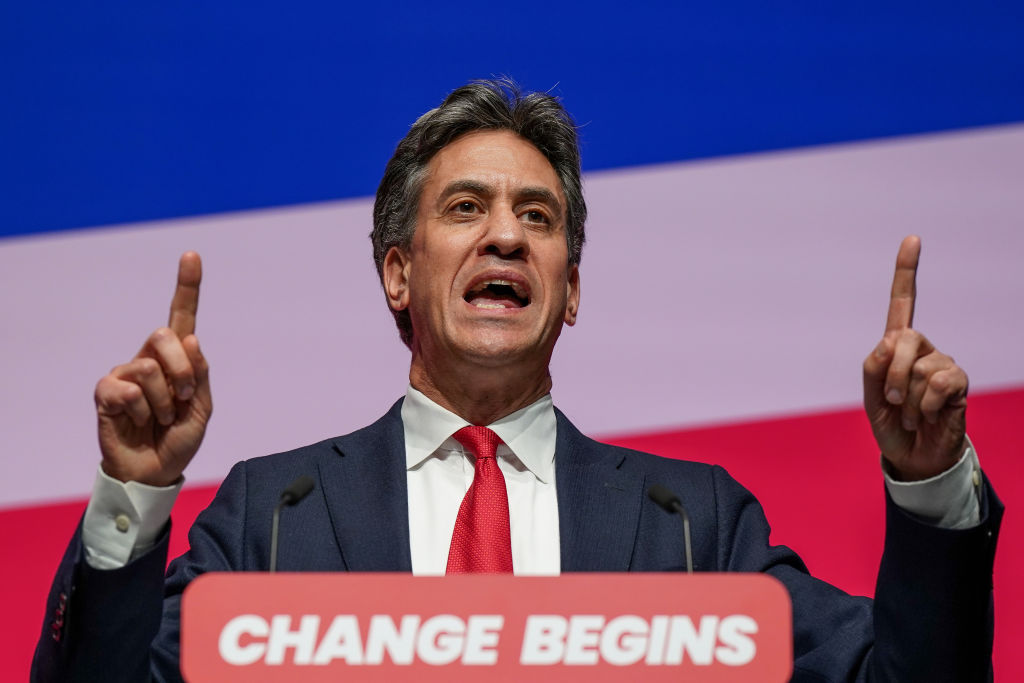
Get the latest financial news, insights and expert analysis from our award-winning MoneyWeek team, to help you understand what really matters when it comes to your finances.
You are now subscribed
Your newsletter sign-up was successful
Want to add more newsletters?

Twice daily
MoneyWeek
Get the latest financial news, insights and expert analysis from our award-winning MoneyWeek team, to help you understand what really matters when it comes to your finances.

Four times a week
Look After My Bills
Sign up to our free money-saving newsletter, filled with the latest news and expert advice to help you find the best tips and deals for managing your bills. Start saving today!
So-called “experts” have been competing in recent weeks to come up with ever more scary forecasts of energy prices and inflation.
Last week, Ofgem raised the price cap on electricity and gas bills for the average customer on the standard tariff from £1,971 per year (up from £1,277 in April), to £3,549 as of October. Those who had the foresight to lock in low prices earlier this year will be unaffected.
Cornwall Insight, a consultancy which very few people had heard of until recently, had forecast the cap will rise further to £4,650 in January, but then quickly raised its bid to £5,300.
MoneyWeek
Subscribe to MoneyWeek today and get your first six magazine issues absolutely FREE

Sign up to Money Morning
Don't miss the latest investment and personal finances news, market analysis, plus money-saving tips with our free twice-daily newsletter
Don't miss the latest investment and personal finances news, market analysis, plus money-saving tips with our free twice-daily newsletter
Not to be outdone, an equally obscure consultancy called Auxilione then came out with a projection of £6,552. Cornwall gazumped them by raising their forecast to £6,616.
Meanwhile, economists at Citi, the serially financially-challenged US bank, are forecasting that the rate of inflation in the UK “could” reach 18.6% in January.
No doubt, new forecasts will soon pop up to outbid them. Energy prices have continued to rise, and it may only be a matter of time before we see price cap projections of £8,000 or £10,000 coupled with even higher inflation projections.
But how credible are these forecasts?
Energy prices and publicity are driving forecasts higher
It’s not hard to understand why analysts seem to be locked in a battle to outdo each other with scary forecasts. The media loves negative news and the projections are right, the forecasters are vindicated and climb the recognition charts.
If they are wrong, everyone is so relieved that their mistake is forgotten. “I’m on the telly, mum!” they can tell their mothers.
These forecasts are not accompanied by the assumptions on which they depend (or maybe they are just ignored by the media) nor are any qualifications noted - of course not, the media isn’t interested in details and caveats, only scary headlines. As the saying goes, “garbage in, garbage out.”
The basis of the forecasts are, presumably, the charts published by Ofgem of forward energy prices.
For gas, these rose from 46p per therm in early 2021 to a peak of 270p in late December. They then dropped but rose to a new peak of 314p in early March before dropping to 210p in May. In recent months, the price has risen to 270p, probably due to extra demand as storage capacity in Europe has been filled.
The gas price, corresponding to $275 per MWh, is currently about four times the equivalent price of oil. Electricity prices rose from 53p per megawatt hour in early 2021 to a December peak of 240p.Prices fell below 150p in May but have since climbed steadily to 258p.
These prices explain the alarmist forecasts for the energy cap but the forecasts make a number of implied assumptions. Firstly, that gas is priced on the current market price whereas much of the supply will be under long term contract. Secondly, that prices will stay high or go higher and thirdly that nothing can be done about it.
About half of the UK's gas is produced domestically. So, producers who are not locked into long term contracts will be making huge profits – hence the demand for windfall taxes.
A better idea would be to require producers to sell under long term contracts at predetermined prices. These prices would be below the current market price, although they might rise above it in future. This would offer producers price predictability and so encourage investment - a key problem with unpredictable windfall taxes.
High energy prices could be the cure for high energy prices
There is no guarantee that Russia’s output will ever recover. While Russia claims that it is reducing exports to Europe deliberately, it is quite plausible that as the economy reverts to Soviet-era practice, productivity has collapsed.
However, high energy prices will encourage production elsewhere in the world, notably through fracking, so there is every chance that the shortfall in output will be more than replaced. For example, UK output has risen more than 25% this year.
Higher prices will encourage fuel economy and reduce demand, so higher output and lower demand will lead to falling prices.
About one third of electricity supply is at market prices and two thirds under contracts, usually for three years. The reason for this arrangement is that prices are expected to fall over time. Therefore, long-term contracts would favour the generators rather than consumers.
At current prices, renewable and nuclear generation is hugely profitable but generators will fear prices falling back.
For example, renewable energy investment company Bluefield Solar recently inked an agreement with the government to lock-in power prices at several of its solar assets at £57.50 per MWh for 15 years. That compares to the recent market price for power in the UK of £350MWh. This gap between long-term and short-term prices illustrates industry expectations.
The reported initiative of the Business Minister, Kwasi Kwarteng, to offer 15 year contracts, presumably at much lower than current prices but rising over time, makes sense. Given that output will continue to rise as new generation from wind, solar and nuclear comes on stream, any shortfall in the short term should be more than compensated for thereafter. Generators will reckon that the best available long-term contracts will be available while current prices are high.
So here’s my forecast for next April. The price cap will not be increased and will subsequently fall. Inflation will peak in the next few months and then fall back. Those pessimistic forecasters will look extremely foolish and you might assume that they will never be heard of again.
You would be wrong. The next time the media is looking for a scare story about energy prices or inflation, they will get the first calls.
Pessimism is big business. and it is much more important to be sensational than accurate.
Get the latest financial news, insights and expert analysis from our award-winning MoneyWeek team, to help you understand what really matters when it comes to your finances.

Max has an Economics degree from the University of Cambridge and is a chartered accountant. He worked at Investec Asset Management for 12 years, managing multi-asset funds investing in internally and externally managed funds, including investment trusts. This included a fund of investment trusts which grew to £120m+. Max has managed ten investment trusts (winning many awards) and sat on the boards of three trusts – two directorships are still active.
After 39 years in financial services, including 30 as a professional fund manager, Max took semi-retirement in 2017. Max has been a MoneyWeek columnist since 2016 writing about investment funds and more generally on markets online, plus occasional opinion pieces. He also writes for the Investment Trust Handbook each year and has contributed to The Daily Telegraph and other publications. See here for details of current investments held by Max.
-
 Should you buy an active ETF?
Should you buy an active ETF?ETFs are often mischaracterised as passive products, but they can be a convenient way to add active management to your portfolio
-
 Power up your pension before 5 April – easy ways to save before the tax year end
Power up your pension before 5 April – easy ways to save before the tax year endWith the end of the tax year looming, pension savers currently have a window to review and maximise what’s going into their retirement funds – we look at how
-
 What's behind the big shift in Japanese government bonds?
What's behind the big shift in Japanese government bonds?Rising long-term Japanese government bond yields point to growing nervousness about the future – and not just inflation
-
 EPC rating standards for private landlords set for major overhaul amid ‘biggest ever’ energy efficiency push
EPC rating standards for private landlords set for major overhaul amid ‘biggest ever’ energy efficiency pushNews The government wants landlords to achieve an EPC rating of at least C in private rented homes. The policy revives plans previously put forward by the Conservatives.
-
 Halifax: House price slump continues as prices slide for the sixth consecutive month
Halifax: House price slump continues as prices slide for the sixth consecutive monthUK house prices fell again in September as buyers returned, but the slowdown was not as fast as anticipated, latest Halifax data shows. Where are house prices falling the most?
-
 Rents hit a record high - but is the opportunity for buy-to-let investors still strong?
Rents hit a record high - but is the opportunity for buy-to-let investors still strong?UK rent prices have hit a record high with the average hitting over £1,200 a month says Rightmove. Are there still opportunities in buy-to-let?
-
 Pension savers turn to gold investments
Pension savers turn to gold investmentsInvestors are racing to buy gold to protect their pensions from a stock market correction and high inflation, experts say
-
 Where to find the best returns from student accommodation
Where to find the best returns from student accommodationStudent accommodation can be a lucrative investment if you know where to look.
-
 The world’s best bargain stocks
The world’s best bargain stocksSearching for bargain stocks with Alec Cutler of the Orbis Global Balanced Fund, who tells Andrew Van Sickle which sectors are being overlooked.
-
 Revealed: the cheapest cities to own a home in Britain
Revealed: the cheapest cities to own a home in BritainNew research reveals the cheapest cities to own a home, taking account of mortgage payments, utility bills and council tax
